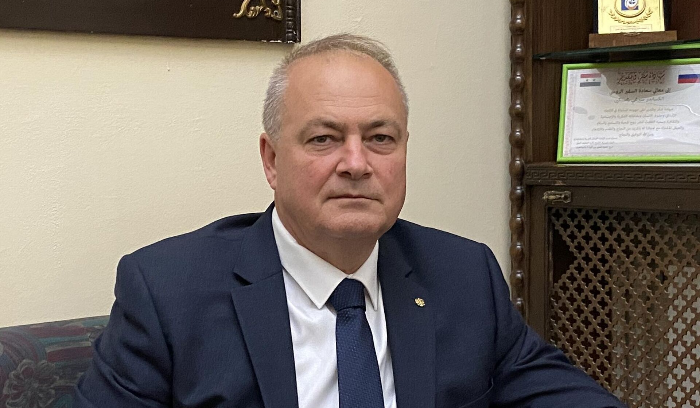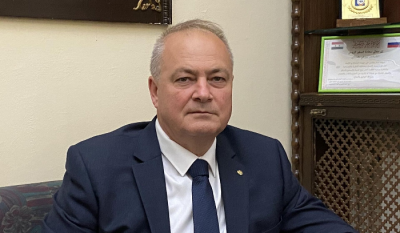The Russian ambassador to Lebanon, Alexander Rudakov, confirmed that "the situation in southern Lebanon is very difficult, especially after the disaster witnessed in the Gaza Strip over the past two months, which reignited at the beginning of this month." In a special interview with "An-Nahar," Rudakov stated that "Russia is making a lot of efforts at various levels to achieve an immediate ceasefire and not just settle for a temporary humanitarian truce. Therefore, we ask all parties in Gaza to immediately stop firing, and this is what we have tried to reach through the United Nations and the Security Council, but unfortunately, we have failed."
He added, "Currently, there are some countries that refuse to stop the fighting in Gaza, despite the fact that the ground situation in the sector poses difficulties and dangers to the various peoples of the region, not only to Gaza and its residents." He noted that "the Gaza Strip suffers from severe sanctions and blockade, and the suffering resulting from the war affects all components of the population in Gaza, especially civilians, and is not limited to Hamas and its military wing."
Regarding the situation on the southern Lebanon front, the Russian ambassador in Lebanon said: "Through the statements issued by both parties to the conflict, we understand that there is no desire to continue military operations and that there is no intention to expand their scope. The matters on the southern Lebanon front are linked to what is happening in Gaza; with the commencement of the truce in the sector, any form of warfare in southern Lebanon has ended."
Concerning Resolution 1701 and the possibility of developing it or finding an alternative, he affirmed that "it must be noted that the resolution came into existence in 2006, right after the July war, and since then, it has managed to impose calm in southern Lebanon. Thus, it can be said that this resolution has succeeded in achieving its goal, despite some violations that could be attributed to the lack of clear and transparent execution by all concerned parties. Regarding the discussion on the necessity of changing Resolution 1701, we ask, if the resolution has been effective for twenty years, is it necessary to change it? Notably, we have not heard any serious statements from the concerned parties about this issue."
On the possibility of drawing parallels between the war in Gaza and the ongoing war in Ukraine, Rudakov pointed out that "there is the West's position that escalates and pushes for security events in Gaza as in Ukraine. However, at the core of both crises, there are historical issues related to the two crises. For the Russian special operation in Ukraine, one can refer back to 2014, and in the Palestinian-Israeli crisis, we must go back to 1948. Highlighting the historical aspect of these two crises emphasizes that suitable solutions have not been found along this historical path, which has led us to the results we see today." He continued: "Over the years, we have proposed several possible solutions to halt the fighting with the Ukrainian people, and the same happened in the Gaza Strip, where several feasible solutions were proposed but were unsuccessful."




